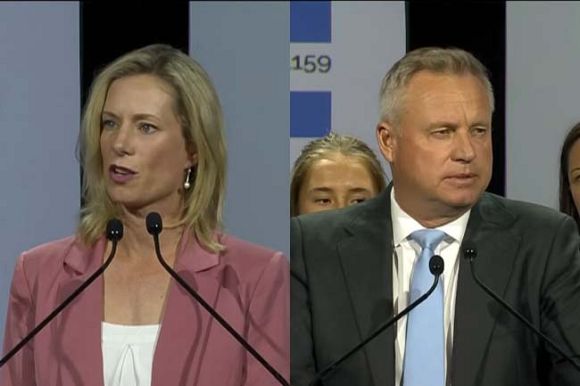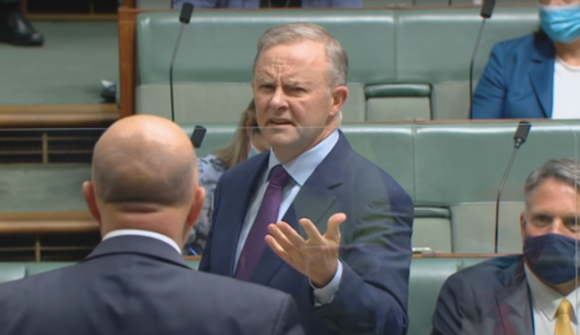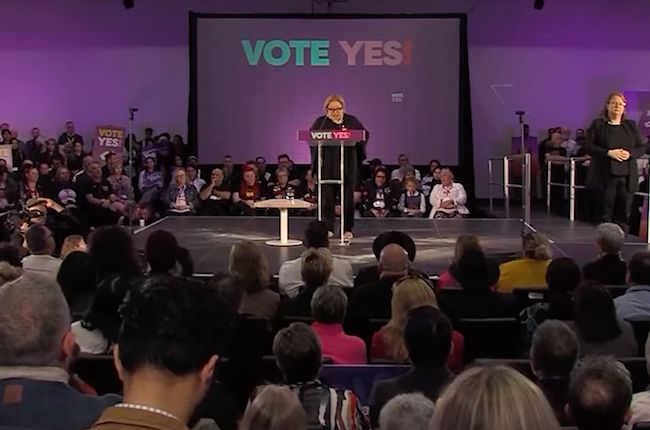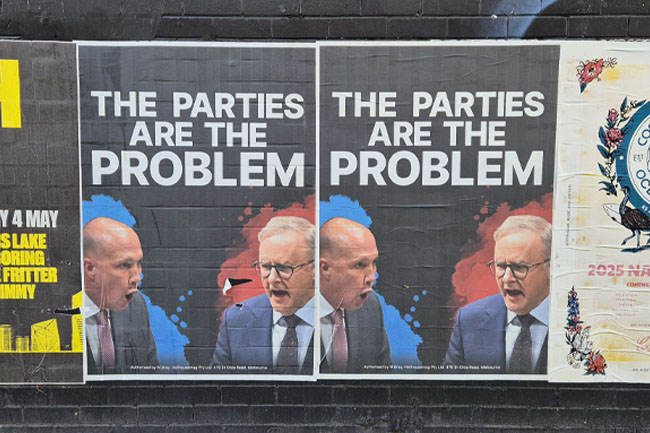It's time we address the disadvantages of our two-party system and speak up for electoral reform, writes Dr Klaas Woldring.
WELL-KNOWN senior journalist Ross Gittins recommended recently that voters who want real reform should vote for minor parties. However, this would not have much real effect in the current single-member district electoral system.
The effect of minor parties in the existing system is minimal in all lower houses of parliament, state and federal. Many have tried but have given up. The system favours the major parties greatly. These parties even increased the minimum members' number for registration from 500 to 1,500 quite recently. That is in their interest, not in the interest of promoting democracy.
Serious system reform is never considered by the Joint Standing Committee on Electoral Matters, which is entirely dominated by the two major parties.
However, Gittins' advice would have a real effect on a party-list proportional representation system used in 85 other countries. For instance, the Greens gained four seats in the 2022 Federal Election, but their total vote was 12.2 per cent which should have yielded 18 seats in a proportional system. The effect of that would be very positive. The ALP could form a coalition with the Greens, little short of a revolution. Good for the ALP, the Greens and the Australian people.
Another advantage of that system would be that pork barrelling becomes undoable. Another major advantage is that the recurring political polarisation of the society is replaced with the need to cooperate to form a majority government. It should be realised that in 2022, in only 15 federal seats a majority was achieved after the first count. In all the other seats (136), MPs do not represent the majority.
The room for improvement is massive. Australians need to ask themselves why this is not happening. Society is clearly short-changed on democratic representation. The answer is simple of course: proportional representation. The current system suits the major parties in all lower houses of Parliament, except Tasmania where a form of proportional representation was introduced by Andrew Inglis Clark in 1907 just as this great reformer passed away.
We should also be aware of the fact that there are no by-elections in proportional party list systems. When an MP resigns, the next on that party's list at the previous election is automatically appointed, if available and still willing to serve as an MP. That is quite a saving of course, financially and in the entire effort to mount a campaign the outcome of which could have negative consequences for a government that is elected for the very short period of three years.
The polarisation of the major parties could be heard 100 per cent again when the PM decided to highlight the capacity of Opposition Leader Peter Dutton to generate dirt at a recent press conference. Soon there could be another by-election, a standard feature of the single-member district system, an unnecessary risky and costly enterprise for the government. The PR party list system does not know by-elections. An MP is replaced by the next candidate on the party's list from the previous general election.
The idea that MPs in single-member districts are representative of a majority is very questionable as well. Altogether, the MPs' administrative function for a single district, then representing several parties in a polarised system, is unconvincing.
In a PR party list system, several parties reflect much larger districts. That makes democratic sense. Safe federal and state seats often have difficulty in gaining government attention and money for projects. Given that we also have state governments and local governments, the additional layer of the representative/administrative role of an MP for a single district doesn't really make sense.
Federal and state MPs can be in safe seats for several elections, really for several years, but are faced with governments of the other major parties that they represent. I have experienced that in Northern NSW myself. Regional areas particularly suffer the consequences of this system.
I think the time has come for Ross Gittins to write more extensively on these problems. My several attempts to get publicity advocating major governance system reform in the Sydney Morning Herald have been refused for many years.
Dr Klaas Woldring is a former associate professor at Southern Cross University and former convenor of ABC Friends (Central Coast).
Related Articles
- Australia's political culture needs to be depolarised
- Progressive politics will shape a better future for Australia
- Younger voters and Independents could spell end of two-party system
- Progressive coalition government is the future for Australia
 This work is licensed under a Creative Commons Attribution-NonCommercial-NoDerivs 3.0 Australia License
This work is licensed under a Creative Commons Attribution-NonCommercial-NoDerivs 3.0 Australia License
Support independent journalism Subscribe to IA.














